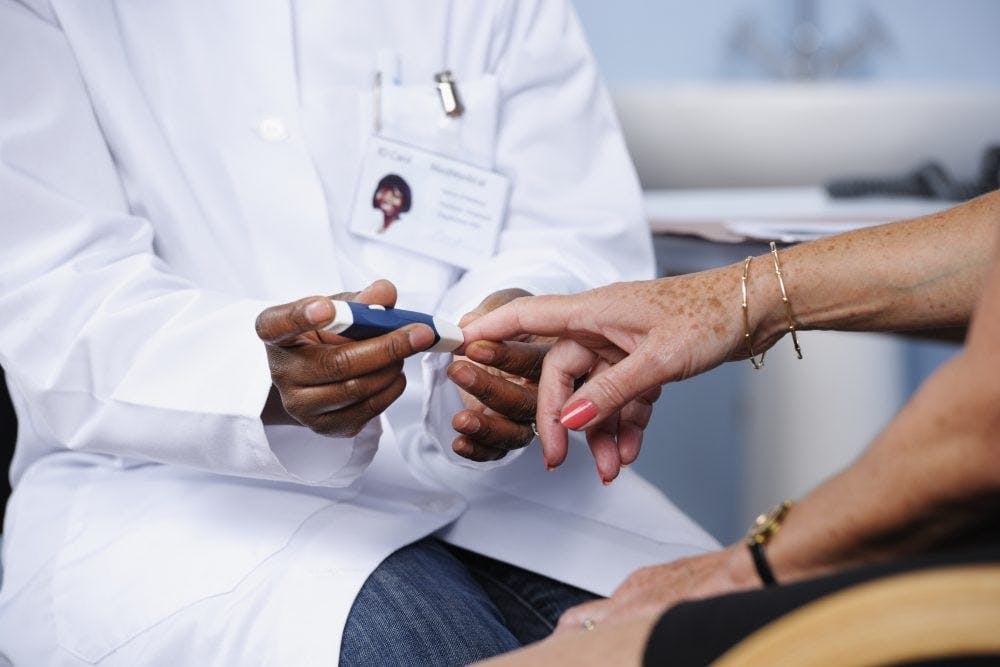
2024-07-12T16:54:51
Sunscreen Travel Tips
- Dermatology
February 27, 2017 | Family Medicine

Lifestyle choices can heavily impact our risk of developing certain diseases. Diabetes, for example, is one such condition that can be prevented by choices we make every day. Roughly 29 million Americans are affected by diabetes, and nearly a quarter aren’t aware they have it.
Most cases of diabetes are classified as Type 2, which is defined by the body’s inability to respond to insulin. Type 2 diabetes can be affected, and even prevented, by simple changes in habit. A 2006 study indicated that major changes to lifestyle reduced the risk of diabetes by 58 percent. Antidiabetes medication resulted in a 31 percent risk reduction. Other studies suggest that up to 90 percent of Type 2 diabetes cases are preventable with the right lifestyle changes.
Coupled with the fact that so many people with diabetes don’t know they have it, spreading information about diabetes prevention is vital. Preventing diabetes can benefit not only your health, but your wallet and quality of life. Here are a few key lifestyle factors that can affect your risk of Type 2 diabetes.
Doctors highly recommend a low-calorie diet that’s high in plant-based foods and natural fibers. In particular, a few things to avoid include:
Try to eat fresh fruits and vegetables when possible, and look for foods high in fiber and whole grains.
Physical activity is a large component of diabetes prevention. Only about one in four adults is considered physically active, and these people have nearly a 50 percent lower risk of developing Type 2 diabetes.
Physical activity influences body fat, and simple, low-stress movements can have a positive effect. Inactivity has been shown to raise diabetes risk, so even a short walk or basic recreation involving movement can go a long way.
For the most part, doctors recommend roughly 150 minutes of moderate exercise per week, though this can differ depending on the individual case.
While light to moderate levels of alcohol are acceptable, this is not the case for smoking. Smoking regularly drastically increases your risk of developing diabetes, and quitting helps decrease the risk.
For alcohol, one or two drinks a day generally won’t be harmful for most people. If you’re worried about what alcohol intake is okay for you, speak to your doctor.
Exercise is vital for keeping body fat levels down. A measure called body mass index (BMI) is used to quantify body fat—it refers to your weight compared to your height. A BMI under 25 is considered generally healthy. That same study cited above indicated that for every 2.2 pounds of excess weight you lose, diabetes risk goes down 16 percent.
Stress causes several reactions in the body, one of which is releasing hormones that increase blood sugar—and therefore the risk of diabetes. Different people have different stress-reduction techniques, and picking one that works for you is essential. Many of these same stress-reducing techniques are also great for adequate sleep, which is another factor in preventing diabetes.
A big part of the reason so many people don’t know they have Type 2 diabetes is because symptoms can be tough to recognize. Regular checkups are advised, especially if you have any family history of diabetes. If you have any questions about lifestyle choices that might prevent diabetes, speak to your doctor.
“Reduction in the Incidence of Type 2 Diabetes with Lifestyle Intervention or Metformin.” The New England Journal of Medicine. https://www.ncbi.nlm.nih.gov/pmc/articles/PMC1370926/?report=reader
“Healthy Changes Can Prevent Diabetes.” WebMD. http://www.webmd.com/diabetes/news/20090427/healthy-changes-can-prevent-diabetes
“Change Your Ways, Reduce Your Risk: 7 Tips for Preventing Diabetes.” EverydayHealth.com. http://www.everydayhealth.com/columns/white-seeber-grogan-the-remedy-chicks/change-ways-reduce-risk-tips-for-preventing-diabetes/
WRITTEN BY:
The Live Better Team


2024-07-12T16:54:51

2024-07-02T11:42:04

2024-07-01T13:49:28

2024-06-21T14:29:51
This information is not intended to replace the advice of a medical professional. You should always consult your doctor before making decisions about your health.